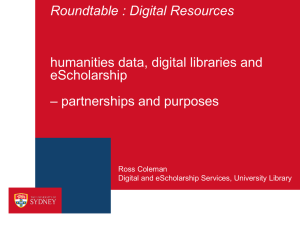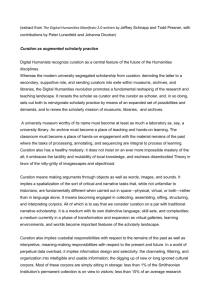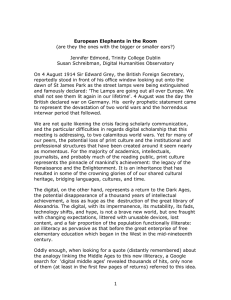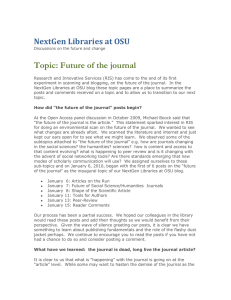Scholarly Agency in a Digital Humanities Context
advertisement
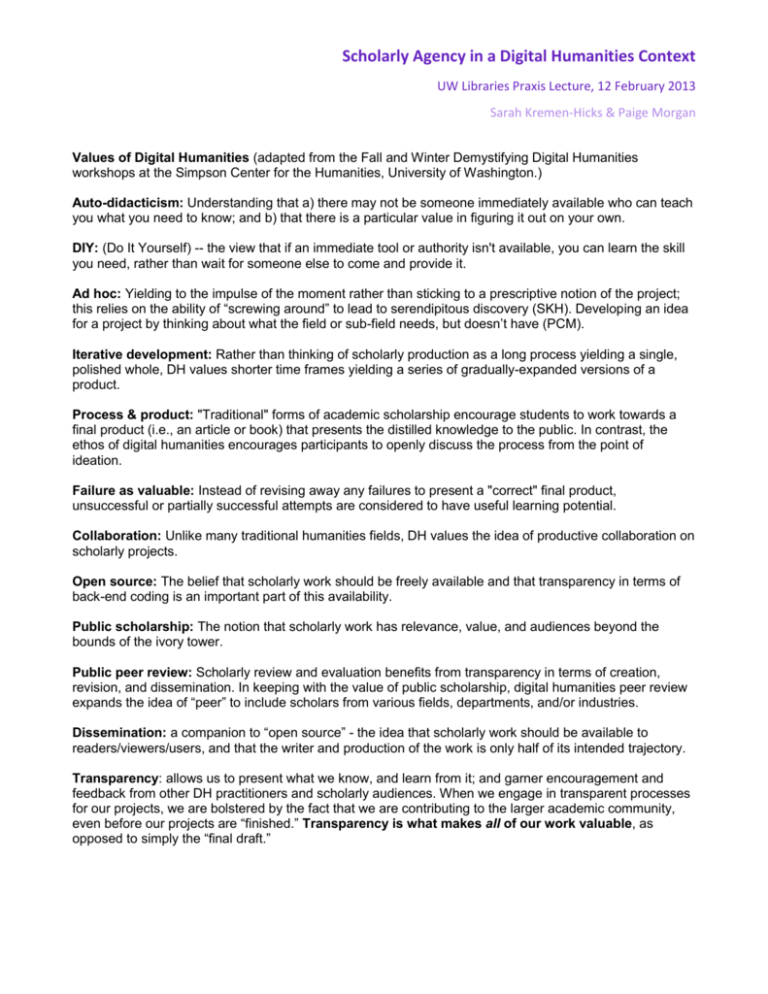
Scholarly Agency in a Digital Humanities Context UW Libraries Praxis Lecture, 12 February 2013 Sarah Kremen-Hicks & Paige Morgan Values of Digital Humanities (adapted from the Fall and Winter Demystifying Digital Humanities workshops at the Simpson Center for the Humanities, University of Washington.) Auto-didacticism: Understanding that a) there may not be someone immediately available who can teach you what you need to know; and b) that there is a particular value in figuring it out on your own. DIY: (Do It Yourself) -- the view that if an immediate tool or authority isn't available, you can learn the skill you need, rather than wait for someone else to come and provide it. Ad hoc: Yielding to the impulse of the moment rather than sticking to a prescriptive notion of the project; this relies on the ability of “screwing around” to lead to serendipitous discovery (SKH). Developing an idea for a project by thinking about what the field or sub-field needs, but doesn’t have (PCM). Iterative development: Rather than thinking of scholarly production as a long process yielding a single, polished whole, DH values shorter time frames yielding a series of gradually-expanded versions of a product. Process & product: "Traditional" forms of academic scholarship encourage students to work towards a final product (i.e., an article or book) that presents the distilled knowledge to the public. In contrast, the ethos of digital humanities encourages participants to openly discuss the process from the point of ideation. Failure as valuable: Instead of revising away any failures to present a "correct" final product, unsuccessful or partially successful attempts are considered to have useful learning potential. Collaboration: Unlike many traditional humanities fields, DH values the idea of productive collaboration on scholarly projects. Open source: The belief that scholarly work should be freely available and that transparency in terms of back-end coding is an important part of this availability. Public scholarship: The notion that scholarly work has relevance, value, and audiences beyond the bounds of the ivory tower. Public peer review: Scholarly review and evaluation benefits from transparency in terms of creation, revision, and dissemination. In keeping with the value of public scholarship, digital humanities peer review expands the idea of “peer” to include scholars from various fields, departments, and/or industries. Dissemination: a companion to “open source” - the idea that scholarly work should be available to readers/viewers/users, and that the writer and production of the work is only half of its intended trajectory. Transparency: allows us to present what we know, and learn from it; and garner encouragement and feedback from other DH practitioners and scholarly audiences. When we engage in transparent processes for our projects, we are bolstered by the fact that we are contributing to the larger academic community, even before our projects are “finished.” Transparency is what makes all of our work valuable, as opposed to simply the “final draft.”




